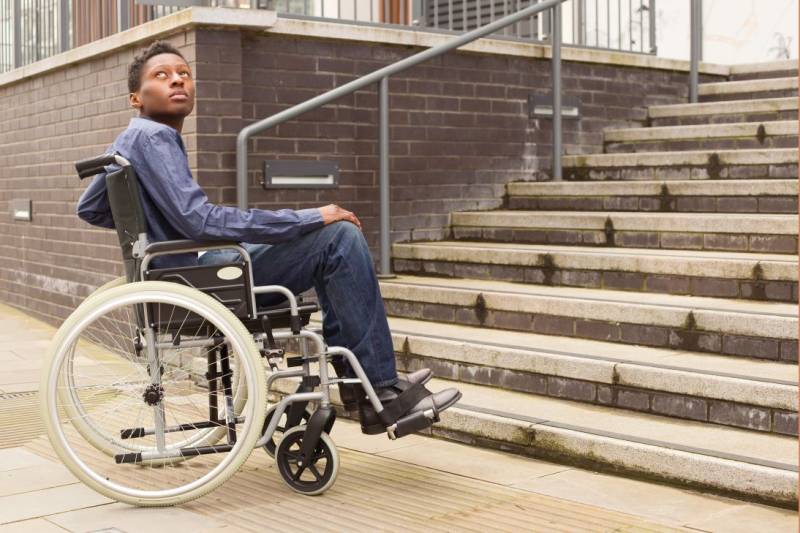Date Published: 02/07/2024
Accessibility in Spanish communities of owners: Legal right or ex-gratia concession?
In Spain, there’s solid legal protection for those requiring work to be done to make their homes and communities more accessible
An extensive study compiled in the last few years showed that, of the almost 10 million residential buildings in Spain, a scant 0.6% of them met with the legal requirements of universal accessibility for people with reduced mobility or disabilities.
Spain prides itself on being one of the most forward-thinking countries in the world in terms of individual rights, but these figures make it clear that a shocking number of older and disabled people are living in homes without basic amenities like elevators and ramps.
Carrying out home renovations to a single property is straight-forward enough and there are several grants available to help home owners do just this. But what if you live in a community of owners where not everyone requires the building to be accessible?
Over the years, a whole range of regulations have been approved, both at regional and national level, to guarantee that buildings are suitable for all residents. These are two of the most important laws to be aware of:
1. Law 15/1995, of May 30, on Limits of Ownership of Real Estate to Eliminate Architectural Barriers for People with Disabilities
This legislation says that people with disabilities and those over 70 years of age have the right to renovate the interior of their own homes to improve accessibility. Furthermore, they can also modify any common areas of the building that connect their home to the public road, such as elevators, stairs, hallways and porches. Electronic devices that promote communication with the outside, such as video intercoms, can also be installed if necessary.
This is certainly the most hassle-free route if not the cheapest, since the understanding is that the owner themselves will pay for the work, although certain subsidies may be available.
To go down this route, all that is required is to communicate to the community of owners that these works are going to be undertaken. If any other residents object then they must have a very good reason and in the end, a judge will decide.
2. Law 49/1960, of July 21, on Horizontal Property
This second law is a little more involved but here there are two options for ensuring that the necessary accessibility works for people with reduced mobility and over 70s are carried out in the common areas of a building.
The first procedure involves bringing the proposal to all the owners and if it’s given the green light with the necessary majority, then the adaptations must be carried out and the owners will share the expense.
But this is where it becomes tricky. If, for example, one elderly resident requests that a lift be installed in the building to improve access, it’s quite possible that the wider community would balk at the financial outlay that this entails.
However, there is a way around this. If the works are deemed reasonable in terms of universal accessibility, then the other owners don’t necessarily have to agree with them as long as the expense doesn’t exceed 12 times the normal monthly community fee, outside of any public aid that may be available. That’s according to article 10.1.b of the law.
On the other hand, neighbours will still be forced to carry out the work even if the cost exceeds this limit, if the aid to which the community is entitled covers 75% of the amount of the work to be carried out.
Once the works are completed, an owner cannot then request any further extensions or modifications. Of course the community will have to do the standard repair and maintenance.
Unfortunately, while there is solid legal protection for those who require accessibility works to be carried out in their community of owners, many vulnerable people are left with no option but to seek professional advice or legal intervention. Many others give up their claims to avoid a conflict or because of the uncertainty over how long the judicial procedure will take.
In cases of disagreements between homeowners or tenants in a community, administration and arbitration professionals
Heniam & Associates are on hand to help communities and urbanisations run smoothly and harmoniously. Contact them today using the contact details below for more information.
Image: Freepik
article_detail

|











